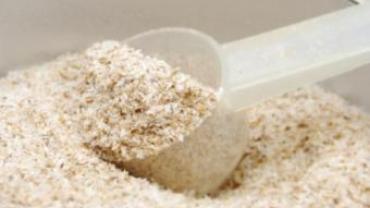
Many Americans have a less-than-perfect diet high in calories short on nutrients and the majority are not consuming enough fiber. A recent study from the University of Illinois showed that dietary fiber can cause a shift in the populations of beneficial bacteria in the gut reducing the risk of colon cancer and type II diabetes as well as other diseases. This research demonstrated that two specific functional fibers may also have the potential to help with weight loss when made part of a long-term diet.
In this study whole-genome sequencing was used to explore the full range of bacterial genomic information in the gut after fiber supplementation. This new information is helping the researchers to understand more about the functional capabilities of the bacteria in the gut when these fibers are consumed as part of a regular diet.
Researchers at the University of Illinois said the most surprising thing in the recent study was a shift in the Bacteroidetes:Firmicutes ratio toward more Bacteroidetes. This is something researchers had not previously seen; however some functional laboratories have been testing this ratio for years. There are two predominant bacterial groups in the gastrointestinal tract Bacteroidetes and Firmicutes. Firmicutes (Bacillus Clostridium and Lactobacillus) are very efficient at metabolizing plant polysaccharides into monosaccharides and short-chain fatty acids. In addition this group also secretes a compound that increases lipoprotein lipase in adipocytes resulting in an increased storage of these fats. The Bacteroidetes group (Bacteroides and Prevotella) is not as efficient at this function. Therefore the balance of these two groups can significantly affect the accumulation of fat stores in the body.
Previous research has indicated that obesity has a microbial component that alters the caloric extraction from ingested food. If more Bacteroidetes is present the individual tends to be leaner. High Firmicutes:Bacteroidetes ratios have been known to increase the caloric extraction from food and these individuals tend to be more obese. This ties together the importance of dietary fiber and weight loss. We also see this with short chain fatty acids (SCFA) on patient stool profiles. Low levels of SCFAs tend to be associated with low levels of beneficial bacteria. When patients introduce prebiotics into their daily regimen or increase their dietary fiber intake by consuming fruits and vegetables the beneficial bacteria and SCFAs both increase.
In the researcher's previous study there were significant shifts in the gut bacterial populations with fiber supplements. However when the supplements were discontinued the bacteria populations seemed to go back to where they started. This shows that if people make changes to their diet to support a healthier gut they need to make these changes permanent.
Only 10 percent of Americans meet their daily fiber needs of 25 to 38 grams per day with most only eating 12 to 14 grams per day. More and more research is demonstrating that the food we eat affects what bacteria populations we have in our gut. The concept of the microbiota being linked to obesity is exciting. By simply consuming more fiber or using specific pre- and probiotic therapies we can significantly affect microbial populations and as a result we can balance these "fat bugs" and improve weight loss.
by Michael Jurgelewicz DC DACBN DCBCN